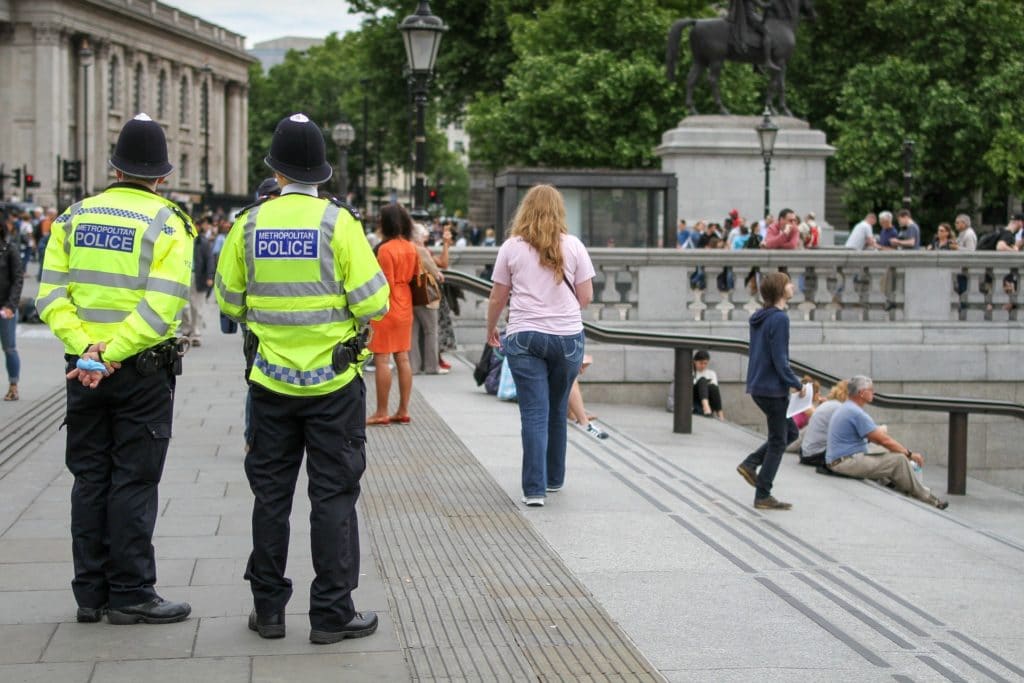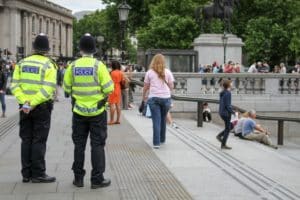Despite some opposition the Metropolitan Police (Met) announced in January that it would begin using live facial recognition (LFR) within its operations where it believes intelligence means it could have a good chance of capturing dangerous criminals. Since this announcement the technology has been used in Stratford in East London.
The Met said at each location it would use a bespoke ‘watch list’, made up of images of wanted individuals, predominantly those wanted for serious and violent offences. The cameras, the police force said, would be focused on a small, targeted area to scan passers-by and would be clearly signposted. The Met emphasised that the cameras being used were a standalone system.
The Met: An important move to aid police with their work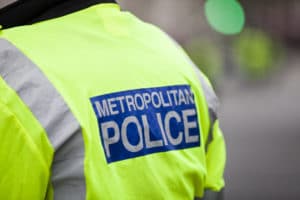
The Met’s Assistant Commissioner Nick Ephgrave, said: “This is an important development for the Met and one which is vital in assisting us in bearing down on violence. As a modern police force, I believe that we have a duty to use new technologies to keep people safe in London. Independent research has shown that the public support us in this regard.
“We are using a tried-and-tested technology, and have taken a considered and transparent approach in order to arrive at this point. Similar technology is already widely used across the UK, in the private sector. Ours has been trialled by our technology teams for use in an operational policing environment.”
The Met said it was not a case of technology taking over from traditional policing; this was a system which simply gives police officers a ‘prompt’, suggesting “that person over there may be the person you’re looking for”, it is always the decision of an officer whether or not to engage with someone.
Police have public support despite privacy concerns
The Information Commissioner, Elizabeth Denham, said the ICO’s investigation into the use of LFR by the police found there was public support but there needed to be improvements in how police authorised and deployed the technology if it was to retain public confidence and address privacy concerns.
The Commissioner issued an Opinion following the investigation and she said the ICO had followed her advice into its planning and preparation for future LFR use. The Opinion acknowledges that an appropriately governed, targeted and intelligence- led deployment of LFR may meet the threshold of strict necessity for law enforcement purposes.
The ICO said it had received assurances from the Met to say it had considered the impact of this technology and is taking steps to reduce intrusion and comply with the requirements of data protection legislation. The Met has committed to the ICO that it will review each deployment, and the ICO will continue to observe and monitor the arrangements for, and effectiveness of, its use.
ICO calls again for a binding code on Live Facial Recognition
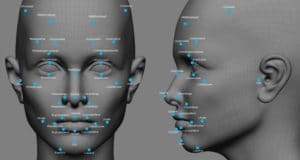 The Commissioner reiterated her call to the government to introduce a statutory and binding code of practice for LFR as a matter of priority. This, the ICO said, would ensure consistency in how police forces use this technology and to improve clarity and foreseeability in its use for the public and police officers alike.
The Commissioner reiterated her call to the government to introduce a statutory and binding code of practice for LFR as a matter of priority. This, the ICO said, would ensure consistency in how police forces use this technology and to improve clarity and foreseeability in its use for the public and police officers alike.
The ICO is carrying out ongoing investigations into the use of LFR said will be publishing more about its use by the private sector later this year.
Tony Porter, the Surveillance Camera Commissioner, has said there was no need for a new code because it is already covered by the Surveillance Camera Code of Practice which is currently being updated by the Home Office.
The current Code of Practice states that: “Any use of facial recognition or other biometric characteristic recognition systems needs to be clearly justified and proportionate in meeting the stated purpose, and be suitably validated. It should always involve human intervention before decisions are taken that affect an individual adversely.”
Surveillance Camera Commissioner says don’t forget people’s human rights
The Surveillance Camera Commissioner directly responded to the Met’s announcement via Twitter. He supported the ICO’s response and called on the Met to observe the broader legislative framework for LFR beyond data protection, including wider human rights issues.
Human rights groups Liberty and Big Brother Watch oppose the use of LFR. Silkie Carlo, director of Big Brother Watch, said the Met’s decision represented “an enormous expansion of the surveillance state and a serious threat to civil liberties in the UK.
“It flies in the face of the independent review showing the Met’s use of facial recognition was likely unlawful, risked harming public rights and was 81% inaccurate.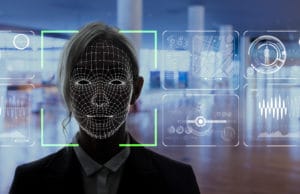
“This is a breath-taking assault on our rights and we will challenge it, including by urgently considering next steps in our ongoing legal claim against the Met and the Home Secretary.”
Clare Collier, Advocacy Director at Liberty, said: “This is a dangerous, oppressive and completely unjustified move by the Met. Facial recognition technology gives the State unprecedented power to track and monitor any one of us, destroying our privacy and our free expression.
“Rolling out a mass surveillance tool that has been rejected by democracies and embraced by oppressive regimes is a dangerous and sinister step. It pushes us towards a surveillance state in which our freedom to live our lives free from State interference no longer exists.”
BBC Radio 4 highlights Live Facial Recognition debate
BBC Radio 4’s File on 4 devoted a recent programme to the issues surrounding LFR which provided details of trials of LFR conducted by police and private companies, which went ahead despite requests from the Surveillance Camera Commissioner for police to ask him before implementing such schemes.
Speaking on the programme Tony Porter called for a regime of inspections of the technology for both public and private bodies. His Commission is scheduled to come to an end in March and it is not yet clear what the government’s plans are for the future of the Surveillance Camera Commissioner role, which was created in 2013.
Ecl-ips is a well-established CCTV provider. We are also committed to adhering to best practice in respect of CCTV installation. Gaining NSI Gold status recently demonstrated our determination to achieve the highest standards that we can reach as a security company. If we can help you develop a CCTV system, or indeed audit your existing system, please feel free to contact us.


